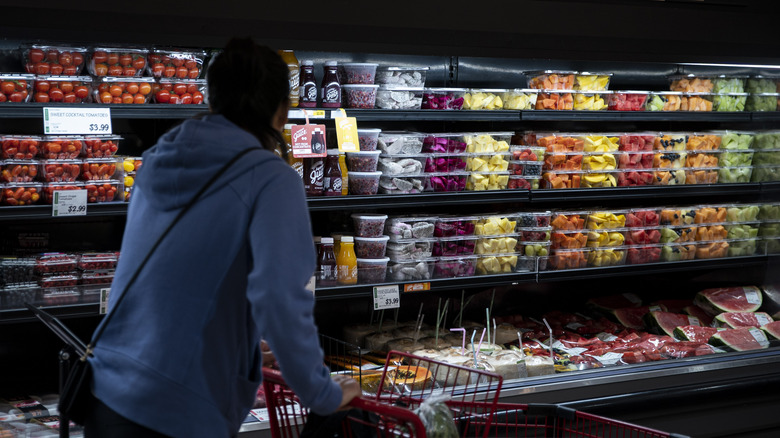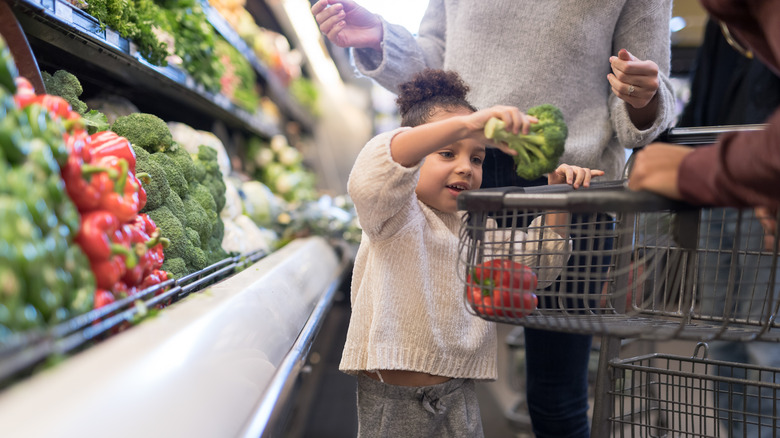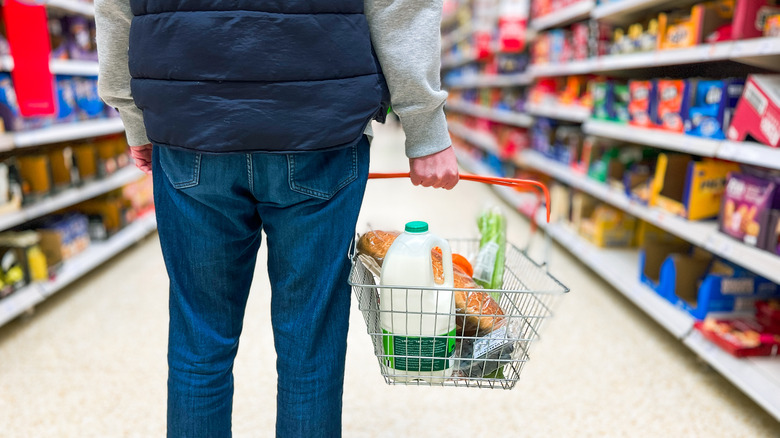Nonprofit Grocery Stores Are The Heroes Helping Save Food Deserts
More than 30 million Americans are food insecure (per USDA Economic Research Service), with more than 20 million people living in food deserts. When someone is food insecure it means that food is either too expensive or too far away to buy. Food deserts are defined by distance — a supermarket has to be more than a mile away in urban centers, or 10 miles in rural areas. If there's access to transportation or a car this is surmountable, but for the millions of Americans who don't have that, it's a significant hurdle. Nonprofit grocery stores are offering some hope as one way to fight the problem.
Residents living in a food desert rely on nearby gas stations, fast food restaurants, and convenience stores for food, which is often lacking in essential nutrients for a balanced diet. It's also expensive — milk is usually around 5% more expensive and cereal 25% more than in other areas, according to a USDA study cited by NPR. A lack of proper nutrition has been shown to lead to a higher risk of both obesity and malnutrition, negatively impact students' school performances, and speed cognitive decline amongst the elderly. The dangerous phenomenon isn't limited to urban areas, as any place with higher poverty rates tends to be a food desert, including rural areas.
You wouldn't be alone in wondering why supermarkets don't open locations in food deserts. The answer lies in economics — supermarkets don't have a financial incentive to do so. Sometimes these neighborhoods — especially gentrifying neighborhoods – undergo a food mirage. There are options for fresh food, but they're too expensive for low-income residents, essentially creating a food desert.
Nonprofit grocery stores sell healthy food at affordable prices and support communities
Nonprofit grocery stores have started popping up in these underserved neighborhoods to address issues of access to food and to educate about healthy eating. They exist solely for the benefit of the residents in the area they serve with no aim of making a profit. They're smaller than a traditional grocery store and cater to low- or fixed-income families. Stores may partner with suppliers or donors to get items at a reduced price. Sometimes the products might be a result of excess inventory, a label change, or donations. Thanks to a tax scheme called New Markets Tax Credit, over 300 nonprofit grocery stores have put down roots in food deserts.
Daily Table operates a network of nonprofit grocery stores in Massachusetts. Besides healthy, ready-made meals that start at $1.99 and 2-for-1 fruit and vegetable deals, they offer classes to teach customers about nutrition and cooking well-balanced meals. Before Jubilee Market opened in Waco, Texas, residents had to walk almost five miles round trip to get to a grocery store. They focus on local products and work with donors to stock the shelves. They offer a rewards program where customers receive $1 back for every $10 spent.
But community and nonprofit grocery stores are under threat from a lack of funding and from gentrification. Jubilee Market isn't far from Chip and Joanna Gaines' complex of shops, and more houses are being flipped, which threatens residents' access to fresh food.
Many nonprofit stores don't thrive without community support
A lack of funding can mean that the nonprofit grocery stores that residents in food deserts rely on can close. This happened at Community Foods Market in Oakland, California. It opened in a neighborhood that hadn't seen a grocery store for more than 40 years, and operated for almost three years before shutting down due to lack of funds and the pandemic. In the case of Philadelphia's Fare & Square, the building was leased to a supermarket chain. Shoppers at Fare & Square used to get discounts on fruit and veggies, but that's no longer the case. Even with grants and funding from parent charities, nonprofit stores are at risk of closing. And with food stamps being cut even though grocery prices are crazy, nonprofit grocery stores are needed to provide fresh, healthy, affordable food where there is none.
But food deserts "aren't natural," according to Raj Patel, a food systems researcher interviewed by The Guardian: They're a result of political choices. Nonprofit grocery stores serving these communities are a start but they're more like a Band-Aid and don't address the root cause. Fighting food insecurity would need systemic changes, like higher wages and improved public transportation. Until the issues are addressed, you can support nonprofit grocery stores by asking about membership subscriptions, donations, or volunteering to stock shelves.


